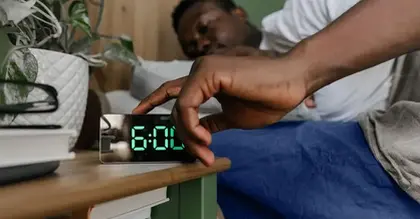What is a benzodiazepine overdose?
Benzodiazepines are medicines used to treat anxiety, alcohol withdrawal, insomnia, muscle spasms, and seizures. Some examples include alprazolam, clonazepam, diazepam, lorazepam, and temazepam. An overdose can occur if you take more than the recommended amount. It can also occur if you take benzodiazepines with alcohol or certain medicines that can cause harm if taken together.
What are the signs and symptoms of a benzodiazepine overdose?
- Extreme drowsiness or trouble staying awake
- Slurred speech or confusion
- Agitation
- Lack of muscle coordination
- Coma
How is a benzodiazepine overdose diagnosed?
Your healthcare provider will ask about the medicines you take. The provider will also ask about the amount of benzodiazepines you took and your symptoms. You may also need the following:
- Blood and urine tests may be done to check the level of benzodiazepines or other substances in your body.
- Pulse oximetry measures the percentage of oxygen in your blood. Pulse oximetry is done using a small instrument placed on your finger.
- An arterial blood gas (ABG) test measures the amount of oxygen and carbon dioxide in your blood. An ABG test also measures the pH of your blood and the amount of bicarbonate in it.
How is a benzodiazepine overdose treated?
Oxygen therapy will be used to help you breathe easier. You may also need a medicine called flumazenil. Flumazenil helps to reverse some of the effects of benzodiazepines.
Treatment options
The following list of medications are in some way related to or used in the treatment of this condition.
- flumazenil
What can I do to prevent a benzodiazepine overdose?
- Take your medicine exactly as directed. Do not take more of the recommended amount of benzodiazepines each time you take it. Do not take benzodiazepines more often than recommended.
- Do not mix benzodiazepines with alcohol, prescription pain pills, or street drugs. The combination of these substances can cause a life-threatening overdose.
- Keep benzodiazepines out of the reach of children. Store benzodiazepines in a locked cabinet or in a location that children cannot get to. Ask your healthcare provider how to dispose of any unused benzodiazepine medicines.
Have someone else call 911 for the following:
- You cannot be awakened.
When should I or someone else seek immediate care?
- You are extremely drowsy, or you have trouble staying awake or speaking.
- Your speech is slurred, or you are confused.
- You have trouble walking or moving parts of your body.
- You feel extremely agitated.
When should I contact my healthcare provider?
- You have questions or concerns about your condition or care.
Care Agreement
You have the right to help plan your care. Learn about your health condition and how it may be treated. Discuss treatment options with your healthcare providers to decide what care you want to receive. You always have the right to refuse treatment. The above information is an educational aid only. It is not intended as medical advice for individual conditions or treatments. Talk to your doctor, nurse or pharmacist before following any medical regimen to see if it is safe and effective for you.© Copyright Merative 2023 Information is for End User's use only and may not be sold, redistributed or otherwise used for commercial purposes.




